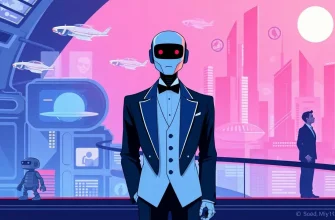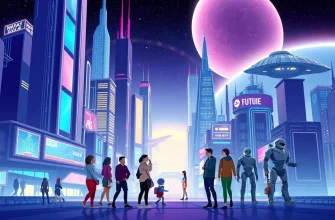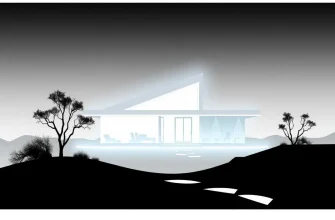Science fiction often explores the vast unknowns of space and technology, but some films take a different approach by grounding their narratives in the mundane aspects of human existence. These films use futuristic settings to magnify and reflect on everyday issues, providing a fresh lens through which we can view our own lives. Here's a curated list of 10 sci-fi films that delve into the ordinary while set in extraordinary worlds, offering both entertainment and insightful commentary on the human condition.
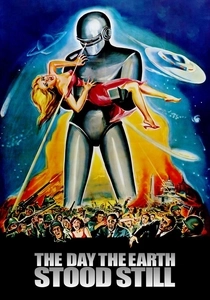
The Day the Earth Stood Still (1951)
Description: This classic sci-fi film uses an alien visitor to comment on humanity's everyday issues like war, peace, and the potential for self-destruction, all set against the backdrop of Cold War anxieties.
Fact: The film was remade in 2008 with Keanu Reeves, but the original is often considered superior for its social commentary.
 Watch Now
Watch Now 
Brazil (1985)
Description: Terry Gilliam's dystopian satire 'Brazil' focuses on a low-level bureaucrat whose life spirals out of control due to a bureaucratic error, highlighting the absurdity of modern life and the struggle against oppressive systems.
Fact: The film's title was inspired by the song "Aquarela do Brasil," which plays during the dream sequences, and it was a point of contention with Universal Studios, leading to a battle over the final cut.
 Watch Now
Watch Now 
The Truman Show (1998)
Description: Truman Burbank's life is a TV show, and his everyday existence is a scripted reality. This film delves into themes of privacy, reality, and the mundane aspects of life when everything is staged for an audience.
Fact: The Seahaven set was so detailed that it was used as a real town for a while after filming, and Jim Carrey was paid $12 million for his role, a record at the time.
 Watch Now
Watch Now 
The Matrix (1999)
Description: In this iconic film, the everyday life of Thomas Anderson, a computer programmer, is upended when he discovers the truth about his reality. The Matrix explores themes of identity, freedom, and the mundane aspects of life within a simulated world, making it a perfect fit for our theme.
Fact: The film's concept was inspired by various philosophical ideas, including Plato's Allegory of the Cave, and the Wachowskis were influenced by anime and cyberpunk literature.
 Watch Now
Watch Now 
A.I. Artificial Intelligence (2001)
Description: 'A.I.' tells the story of a childlike android seeking to become "real" to win back the love of his human mother, exploring themes of family, identity, and the human condition.
Fact: The film was originally conceived by Stanley Kubrick, but after his death, Steven Spielberg took over and completed the project.
 Watch Now
Watch Now 
Eternal Sunshine of the Spotless Mind (2004)
Description: This film explores the concept of erasing memories to escape the pain of heartbreak, reflecting on the everyday struggles of love, memory, and identity in a sci-fi context.
Fact: The film's title comes from a poem by Alexander Pope, and the script was written by Charlie Kaufman, known for his unique storytelling style.
 Watch Now
Watch Now 
The Terminal (2004)
Description: While not strictly sci-fi, 'The Terminal' uses an airport as a microcosm of society, where a man must navigate everyday life in an extraordinary situation, reflecting on themes of immigration, bureaucracy, and human resilience.
Fact: The film was inspired by the real-life story of Mehran Karimi Nasseri, who lived in Charles de Gaulle Airport for 18 years.
 Watch Now
Watch Now 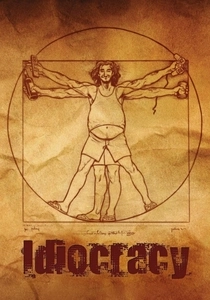
Idiocracy (2006)
Description: In 'Idiocracy,' an average man wakes up 500 years in the future to find that society has devolved into a state of idiocy, highlighting the everyday issues of intelligence, education, and societal decay.
Fact: The film was not released in theaters as planned due to distribution issues, and it has since gained a cult following.
 Watch Now
Watch Now 
Her (2013)
Description: 'Her' examines the relationship between a lonely writer and an advanced operating system, exploring themes of love, loneliness, and the human need for connection in a world where technology is increasingly integrated into daily life.
Fact: The film's voice for the OS, Samantha, was provided by Scarlett Johansson, who was not the first choice for the role; Samantha Morton was originally cast.
 Watch Now
Watch Now 
WALL-E (2008)
Description: Pixar's 'WALL-E' uses a robot's journey to explore themes of consumerism, environmental degradation, and the human need for connection, all set in a future where Earth is uninhabitable.
Fact: The film was almost entirely silent for the first 30 minutes, relying on visual storytelling, and it won the Academy Award for Best Animated Feature.
 30 Days Free
30 Days Free 



